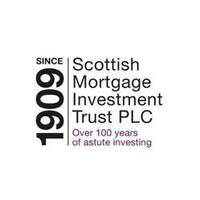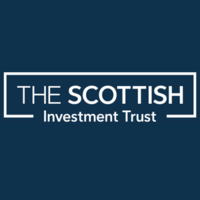The Scottish Investment Trust PLC (LON:SCIN) invests internationally and is independently managed. Its objective is to provide investors, over the longer term, with above‑average returns through a diversified portfolio of international equities and to achieve dividend growth ahead of UK inflation. Today it announced its results for the year to 31 October 2018.
Highlights
· Regular dividend increased by 6% to 21.2p
· 35th consecutive year of regular dividend increase
· Additional special dividend of 4p
· Share price total return +1.9% and NAV total return +1.1%
Chairman’s Statement
Performance
I am pleased to report that the Company delivered another year of positive total returns during the twelve months to 31 October 2018. The share price total return was +1.9% and the net asset value per share (NAV) total return (with borrowings at market value) was +1.1%.
The Company does not have a formal benchmark but, by way of comparison, the sterling total return of the international MSCI All Country World Index (ACWI) was +3.4% while the UK based MSCI UK All Cap Index total return was ‑1.3%.
As noted in previous communications, we do not expect the Company’s portfolio to match any particular index return over any defined period due to the contrarian nature of the portfolio’s composition. Our contrarian approach aims to achieve above‑average returns over the longer term.
Investment approach
The investment management industry continues to undergo rapid change. A clearer distinction is now made between passive and active investment management. Increasingly, investors wish to either track a stockmarket index or, instead, seek a genuinely active and differentiated approach.
Passive products, by design, take no account of valuations or future prospects. We think this creates an opportunity for an active, long‑term investor.
The high conviction, global contrarian investment approach adopted by Alasdair McKinnon and his team clearly distinguishes the Company from our global investment trust peers and from passive investment products.
The approach aims to profit by investing in carefully selected, but unfashionable, companies which appear undervalued as they are overlooked by other investors who prefer the comfort of investing with the crowd. As an independent investment trust, The Scottish is able to take this differentiated view in the long‑term interest of shareholders.
This contrarian philosophy is reflected in the portfolio which is constructed without reference to any benchmark or stockmarket index. We do not expect the portfolio return to be similar to a particular index return in any given year and we expect that the contrarian style will work differently depending on market conditions. For example, the Manager expects that the Company might not participate fully in more speculative market conditions as the investment team seeks to avoid investments that are sustained by overly enthusiastic sentiment.
Growing our following
The Scottish has made many important changes in recent years, which I have discussed in previous Chairman’s Statements. The aim of these changes was to continue to provide an attractive, low cost investment vehicle for our shareholders who are mainly individuals. We aim to grow our loyal following as the merits of our approach are increasingly recognised. In this regard, it is pleasing to note that we were voted Best Investment Trust in the 2018 Shares Awards, received the award for Best PR Campaign from The Association of Investment Companies and were awarded Best Investment Trust for Income at the Online Personal Wealth Awards.
A very visible change has been our reinvigorated approach to marketing and investor communications. By communicating our distinct investment style in an engaging manner, we aim to stimulate additional demand for the Company’s shares to seek to ensure that the discount to NAV remains at or below 9% with a reduced recourse to share buybacks. The team has produced a wealth of thought‑provoking content which is shared on our website and social media. I would encourage you to follow us on Twitter and LinkedIn. News and articles can be found on our website and you can also subscribe to our monthly email.
Dividend policy
The year to 31 October 2018 was the first year of our higher and more frequent dividend. A full rationale for these changes was outlined in last year’s annual report but, as a reminder, the key elements are summarised below.
Last year there was a step change increase in the regular dividend, lifting it by nearly half, as well as a shift to quarterly dividend payments. The contrarian style does not explicitly target higher yielding investments but is expected to generate a higher than average level of income through an investment cycle. If there are occasions when the portfolio does not generate a sufficient level of income to cover the requirements of the regular dividend, the Board considers that it would be appropriate to utilise the Company’s healthy revenue reserve.
Shareholders now have a clearer indication of the income that they can expect to receive from their investment while gaining a more regular income stream. Following this step change increase, the Company has one of the highest stated dividend yields among its global investment trust peers.
Income and dividend
Over the past year, earnings per share rose by 12.8% to 26.0p (2017: 23.1p).
The Board recommends a final dividend of 6.2p which, if approved, will mean that the total regular dividend for the year will increase by 6.0% to 21.2p and will be the 35th consecutive year of regular dividend increase.
The Board’s target is to declare three quarterly interim dividends of 5.3p for the year to 31 October 2019 and recommend a final dividend of at least 5.3p for approval by shareholders at the Annual General Meeting in 2020. The final dividend will be reviewed in accordance with the Board’s desire to continue the long track record of annual dividend increases and the aim of the Company to provide dividend growth ahead of UK inflation over the longer term.
As outlined in my statement last year, the Company is less likely to pay discretionary special dividends in future years but, as the income generated for the year to 31 October 2018 is substantial, the Board recommends a special dividend of 4.0p.
Amendments to the Articles of Association
As part of the business to be proposed at the Annual General Meeting, the Board is seeking shareholder approval for the adoption of new Articles of Association, primarily to take account of legislative changes and developments in market practice. Certain statutory rules governing investment trusts and companies were amended in 2012. In particular, the rule which prohibited an investment trust from distributing any surplus arising from the realisation of its investments was repealed. In compliance with the previous statutory regime, the Company has a provision in its current Articles which expressly prohibits the distribution of any surplus arising from the realisation of any investment. In the light of the amended statutory rules, the Board no longer considers it appropriate for the Articles to contain such a prohibition and therefore proposes that it is removed. The Board believes that the removal of this restriction will give the Company greater flexibility in the long‑term as it will enable the Company to make distributions from any surplus arising from the realisation of any investment. However, the Board has no intention of exercising this authority at the current time.
The Board is also taking the opportunity to propose some additional amendments to the Articles to increase the aggregate limit of Directors’ remuneration in each year from £250,000 to £300,000 and to reflect other recent regulatory changes including, for example, in relation to the Company’s international tax reporting obligations and the Alternative Investment Fund Managers Directive. The increase in the aggregate limit of Directors’ remuneration provides additional flexibility over the number of Directors on the Board and ensures that the Company continues to have the ability to pay Directors’ fees in line with the market in the future.
Discount, share buybacks and ongoing charges
The Company follows a policy that aims, in normal market conditions, to maintain the discount to NAV (with borrowings at market value) at or below 9%. The average discount over the year was 8.6%.
During the year, 2.3m shares were purchased for cancellation at an average discount of 9.3% and a cost of £19.5m. In the previous year, 16.9m shares were purchased, although this included the exit of Aviva from the share register who were generally selling investment trust holdings inherited through its purchase of Friends Life. Excluding the Aviva transaction, 5.5m shares were purchased in the previous year.
The ongoing charges figure (OCF) for the year under review of 0.52% (2017: 0.49%) remains favourable compared with other actively‑managed investment vehicles. All else being equal, a lower share count from buying back shares increases the OCF. As a self‑managed investment trust, the OCF represents the ongoing costs of running the Company as a proportion of net assets. We have substantially reduced our costs in recent years.
Gearing
After a period of strong performance from markets, when combined with a seemingly greater than usual number of potentially destabilising events, the Company reduced gearing to 0% in August. Prior to this, gearing had been maintained at around 5% for a number of years. This proved a timely change in light of the subsequent correction in markets, but we continue to review opportunities to deploy gearing for the long‑term benefit of shareholders.
Outlook
Politics has changed in recent years. The consensual politician, driven by focus groups, is a species on the wane. Meanwhile, politicians with a greater tendency to shoot from the hip and to challenge established norms have been in the ascendancy.
The drivers of this trend are complicated but very important must be the fact that, economically, it has been a poor decade for large sections of the population in a number of countries. Politicians now seem to have adopted a mantra that the benefits of economic growth must be spread more equally within their own borders whilst eroding their commitments to balance budgets.
Central banks continue a creep towards the ‘normalisation’ of monetary policy following a long period of crisis measures. The US Federal Reserve is most advanced in this strategy, but the difficulty of this challenge when debt levels are high is best highlighted by the fact that President Trump has launched hostile tweets criticising its endeavours.
Brexit negotiations remain what best can be described as complex. We expect any perceived progress to be reflected in the value of sterling.
There are a number of other geopolitical issues that could move markets in either direction, depending on how they develop. The most obvious concerns are the apparent slowdown in the Chinese economy, the state of relations between the US and China, a debt crisis in Turkey, the actions of the new Italian government and US relations with Iran.
The larger than usual number of risks, combined with the strong performance of equities in recent years, mean that the Company currently has a cautious view about the short‑term outlook for markets.
The Board is pleased with the progress made to transform the investment approach, the increase in the regular dividend and the improvement in the profile of Scottish Investment. It believes that the Company is differentiated, cost competitive and an attractive investment vehicle focused on delivering above‑average returns and dividend growth over the longer term.






































